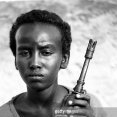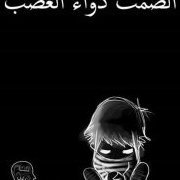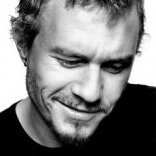Leaderboard
Popular Content
Showing content with the highest reputation since 01/22/2019 in all areas
-
4 pointsNiyaw horta comments kaagu kaama khasaarin aragti saxaad cabirtay oo aad qortay. Laakiin imika waanba sakhraansanay oo kuuma jawaabi karo indrkay talaabo wax waydiiya. Anigu geeridii nebiga ma ogiye
-
4 pointsOn the positive side this shows Somaliland is starting to realize ictiraaf isn't possible and taking more active role in the politics of Somalia.
-
4 pointsDP World completes 400 meter expansion of Somaliland’s Berbera port. 59Shares Friday August 14, 2020 DP World this week announced the completion of a 400-meter expansion of the Berbera port in Somaliland. The Dubai Port Company that is contracted to expand the port said once operational, it will increase the terminal’s capacity by 500,000 TEUs per year and further strengthen Berbera as a major regional trade hub servicing the Horn of Africa. In a tweet, DP World stated: “We have just completed a 400m quay and a new extension at Berbera Port, Somaliland. Once operational, it will increase the terminal’s capacity by 500,000 TEUs per year and will further strengthen Berbera as a major regional trade hub servicing the Horn of Africa.” The news has elicited excitement within the Somaliland government with the vice president Abdirahman Abdilahi saying: “As Deputy President of Somaliland and on behalf of the people, words can’t express my great excitement about the nearing completion of the Berbera port expansion. my gratitude goes to the Sheikhs of the UAE and the DP World.” DP world, the Dubai based world’s largest port operator is the key player in the rebuilding of Berbera, they have invested $442 million for the expansion of the port and are also the economic free zone. It has projected to complete work by February next year. advertisements In 2017 when the original agreement was signed, the CEO of DP World Mr. Sultan Ahmed bin Sulayem drew a parallel between the growth of Dubai and the development path Somaliland is on and added “Our vision is to make Berbera a trading and transportation hub for the Horn of Africa.” Berbera port is among the few corridors in the Horn of African region, which serves for both military and commercial purposes. The Berbera Port was built in 1964 by the Soviet Union and further expanded by the United States of America (USA) in 1982. It has served for both the Soviet Union and the U.S military within a span of 20 years. Once completed, facilities and service will surpass those in the neighbouring Djibouti according to the contractors. According to the DP World, the port will be able to handle the biggest ships compared to the other ports in the region and will complement activities at the Port of Djibouti and the Lamu Port which is also under expansion in the coast of Kenya. The Berbera Port expansion is the largest investment in Somaliland since it parted ways with Somalia in 1991. Work on the port expansion has reduced due to the measures put in place in the fight against the spread of the deadly coronavirus but the Somaliland government and the DP World have projected all facilities will be ready for operation early 2021. “We are very much on course. Of course the coronavirus has affected the speed at which we were on, but we will soldier on and deliver the most modern port facility in Berbera,” an official of the DP World said. The Berbera port expansion, designed to equip the Somaliland port for major vessels and transform it into one of Africa’s pre-eminent facilities. Expansion of the port started early last year with the first phase at a cost $101 million. Federico Banos-Linder, Vice President External Relations, DP World, said once the port is done, Somaliland will be one of the biggest and most modern players in the maritime industry in the Horn of Africa. “Already with phase one of the three phases done, we have increased the container capacity by 50 per cent and pushed volumes by 70 per cent which is a massive improvement. “We are now exporting 4 million livestock from 1.5 million just less than a year ago,” said Banos-Linder. Total investment of the two phases will reach $442m. The port’s current capacity is around 150,000 twenty-foot equivalent units [a measure of ships container carrying capacity] and is set to expand to 450,000 TEUs once development is complete. DP World firm will also create an economic free zone in the surrounding area, targeting a range of companies in sectors from logistics to manufacturing, and a $100m road-based economic corridor connecting Berbera with Wajaale in Ethiopia “Our aim is to make this an important regional hub for the maritime industry in the Horn of Africa,” DP World chairman and Chief Executive Officer Sultan bin Sulayem said. “We are within schedule in our work,” he added. DP World holds a 51 per cent stake in the Berbera port, while Ethiopia holds 19 per cent and Somaliland the rest
-
4 points
-
4 pointsThe recently upgraded Hagreisa land database registry is actually part of a larger project by Somaliland Gov't and SolidBlock Inc. The project will be using state of art block-chain based database to register land titles and other key assets.
-
4 pointsOodweyne They can't keep up. Befuddled, bemused and bewildered by Somaliland’s growing gravitas at international diplomacy. While they play tiddlywinks with Mudulood this and Dhuusomareeb 2.4 that. At least they're a curious bunch.
-
4 pointsThis is great improvement.The land database in Somaliland has been a consistent headache and cause for a lot of troubles including missing files, disputes etc. The introduction of GIS system will greatly simplify while at the same time is more secure and more reliable.
-
4 points
-
4 pointsAnd when they are training our navy and Air force it will be reported as a "Latin American" and an "Eastern European" country respectively
-
4 pointsThe political culture in Somaliland is an egalitarian one. Specially Beesha Dhexe. So for everyone from the unknown to the well known to have equal say and communicate their personal feelings or believes, it is a welcomed sign that the people are moving forward. This is why in Somaliland almost everything is openly discussed and nothing is hidden. The gov't is held to account, the ministers coming on TV explaining their side of the story. You will never see this type of open discussions of gov't ministers and opposition party engaging in lively political discourse about the goings on, anywhere else in the Somali regions. We know Mogadishu Khaire's moratorium on media engagement by his cabinet. We know Cheeseman, after almost 3 years, has never held an open questions interview. The same goes for Puntland where each Hagbad inheritor takes the enclave on a personal ride with no questions asked. So, all these public engagement, is music to my ears that the people are awake and taking part and shaping their future. What other Somalis take for granted, in Somaliland we don't. If we think the gov't is not on the right path, we tell it like it is without mincing words. And not wait until end of the tenor and call it 'what a bad leadersip it was' like Puntlanders do every 4years. Rather, you have to oppose what is wrong and support what is right every single day.
-
3 pointsVery much reflections of what I would expect from a bloody foreigner on a hushed visitation to a war zone marinated with a toss of mislaid Somalinimo flavour to balm chapped cavities of the forlorn diaspora hordes. Take you seriously, I shall not, till you have taken a crowded bus, with tiny seats not fit for a tall, burly gentleman of a certain age, from Adam Adde airport, paid the $5 fee to stride to the taxi rack, fight your way through rows of poor beggars to find a taxi or a bajaj to your destination; then at dawn, take a stroll through Bakaraha market for a homely breakfast in one of the low end shacks-turned-restaurants competing fresh "laxoox / canjeelo" flying off the pan with builders / workers in the morning rush, and get a sodden whiff of the rubbish, from the day before, still stacked up in the streets. With that, you would be a local lad back at home. But with you fancy bulletproof limo, VIP reception, backdoor exit to the city, and trotting between blue beaches and fancy hotels, mate, you are a bloody foreigner on tour. Now, tell me, is Awdal safe? Is Lughaya secure? Is Ceel Sheekh off limits?
-
3 pointsThe ‘ictiraaf’ thing has really confused some, Ethiopia already enters agreements with Somaliland, has a diplomatic mission that reports directly to Addis, has direct flights to Hargeisa. What more ictiraaf than that will Ethiopia bring you, changing the sign board of its Consular Mission to Embassy is that worth selling your land for it.
-
3 pointsThe stip of land probably bigger than Gaza which warlord Muuse is giving away to Ethiopia will quickly be flooded with millions of Oromos and Afar, creating a de facto Ethiopian province in our own country. This new foreign region will cut off the Somalis in Djibouti from those of Somaliland and Somalia, completely isolating them. This isolation will weaken them and enable Ethiopia to help the Afar take over Djibouti. After getting access to the sea, Ethiopia will then be even more aggressive in pushing the Somalis in Ethiopia off their land and threaten every other region from the sea. This disaster waiting to happen must be stopped before it is too late.
-
3 pointsCarfaat Layskuma hayo in afrikaan iyo amxaaro maamulaan koonfurta, xoogna ku joogaan markaan dhexdeenii is dilnay oo daciifnay. Gaalo kale oo walaalahood ah yaa koofiyad cagaaran u xidhay nimankaasu waa sharciyaysan yihiin. Meesha kaliya oo aan islahaa waa lagu faani karaa waxay ahayd waqooyiga oo aan askari ajnabi ah joogin marnabana aan lagu arag. Laakiin snm waxay noqotay ninkii boqolka soomay oo bakhtiga ku afuray Baqdinta aan iminka qabaa waxay tahay in la arkay meesha aad ka jilicsan tahay oo ah "tol" la'aanta. Taasina waxay keenaysaa in amxaar kuul leh lagula walaaleeyo, dadkaagii soomaaliyeedna cadaw kuu noqdaan. Ugu dambayn Adeer hashaasu waa jabtay, waliba si sahlan geelu haduu jabo ma kabmo waa la qashaa, Hashaas jabtay cuna oo karsada intuu amxaar ceeriin ku cuni lahaa. Afeef Hadaad luuqadayda garan waydo raali ahaw, jiilkii hore yaan kasoo jeedaa. Ogowna aduunka waxaan ugu necbahay caadifadda ka sakow, inaan arko soomaali, soomaali kale maydkiisa kor taagan xataa haduu shbaab yahay.
-
3 points
-
3 points"We are Somalis, we will remain as Somalis, the most painful thing we felt was that you will not govern yourself, but we will govern you. We have denied that, the decision and advice of what happened in LasAnod, SSC Khaatumo is for the Somalis. We do not want to revenge them, the victory we achieved is a victory for the Somalis." Leader of SSC-Khatumo Abdiqadir Ahmed Aw Ali. (Today’s speech at Laascaanood September 14, 2023). "Anagu Soomaali baanu nahay, Soomaali baan ahaan doonaa, waxa ugu xanuunka badan ee aan dareenay wuxuu ahaa - Tashan mayside anaa kuu talin doona! Taas anagaa beeniney, go'aanka iyo talada wixii ka dhacay Laascaanood Waxay u taalla Soomaali. Ma doonayno in aanu aarsano, guushii aanu gaadhney waa guul Soomaaliyeed.” Hogaamiyaha SSC-Khaatumo Cabdiqaadir Ahmed Aw Ali. (Maanta khudbadii, Laascaanood, September 14, 2023."
-
3 pointsConcur, I really hope this will be the end of warmongering and cool headed and rational thinking returns to our people, but fear it won’t be the case yet.
-
3 pointsNow that Muuse & Co. have been defeated, let us sit down, as Somalis, as we have always done, agree to live in harmony, and work for a common good. No vengeance, no point scoring!
-
3 pointsIf they ever take a legal action against any investor in the Western courts, Somaliland will have a huge opportunity to challenge Mogadishu's claims to sovereignty and expose the whole fraud the illegal "union" was built on.
-
3 pointsFarmaajo pushed the dictatorial limits and that was most likely his downfall. He was truly convinced of his own invincibility till the end. People were also tired of the continued corruption that never went away even though Farmaajo campaigned on a promise to end it. I think this was anti-Farmaajo vote than anything else. Anyways, the country needs prayers and all the help it can get because the new guy was far worse on corruption than Farmaajo. Hopefully HSM learned his lesson and comes up with new ideas to govern the country because he was truly unable to deliver anything meaningful the last time he was given the chance.
-
3 points
-
3 points
-
3 pointsJapan named a scholar who teaches in China as its new ambassador.
-
3 points
-
3 pointsProf Faratoon is in Ankara, Turkey. He will be holding talks with officials from Turkey's Foreign Affairs. Somaliland: FM Arrives in Turkey | Somaliland Standard SOMALILANDSTANDARD.COM The Foreign Minister of the Republic of Somaliland arrived in Turkey for talks with his Turkish officials at the ministry of foreign affairs. Somaliland’s Foreign Minister, Yasin Haji …
-
3 pointsHello; Roughly 20 years ago I remember this beggar from Baidoa nearly lost it when President Riyaale expelled from Somaliland a couple of hundred Professional beggars from Baidoa and it seems he’s still bitter about it. Sadly in my absence from SOL no one bothered to set him straight so I will try to play the devils advocate here and break the sad news to him knowing fully well how obstinate beggars are. President Biixi does not chew qaad, smoke or drink. I know your beggers mind can’t and won’t grasp that but it’s a FACT. However I can’t say the same for your Fellow beggars back home in Baidoa and among the few in the diaspora. 75% of the income your folks earn begging in Mogadishu is spent on those 2 vices. both alcohol and qaad have become a favorite pastime in Baidoa enjoyed by many of the locals. Even the former chief beggar Jawari was an alcoholic. Excuse me if I forgot my manners but one can’t but help kick an obtuse beggar once in a while. good to see the old folks who I knew from many many years ago btw.
-
3 pointsWAJAALE NEWS DAWLADDA ETHIOPIA OO XAFIISKEEDA HARGAYSA GAADHSIINAYSA HEER SAFAARADEED! July 20, 2020 - Written by Editor: Addis Ababa(W,N), Dawladda dalka Ethiopia ayaa xafiiska Arrima Ilaaliyaha (Mission) ee ay ku leedahay Caasimadda Somaliland ee Hargeysa gaadhsiinaysa heer Safaaradeed (Embassy), Sidaana Waxa Arabsiyo Online u sheegay Saraakiil sarsare oo ka tirsan Wasaaradaha Arrimaha Debadda ee Ethiopia iyo Somaliland, kuwaasi oo codsaday in aan la magacaabin. Sida ay Saraakiishani sheegeen, talaabadani ay dawladda Ethiopia qaadayso, waxay ka dambaysay ka dib markii ay todobaadkani dhexdiisa wada hadalo dhinaca Telefoonka ahi dhexmareen masuuliyiinta Somaliland iyo kuwa Ethiopia. Wada hadaladani ayaa la sheegay inay salka ku hayeen, ka dib markii ay dawladda Ethiopia ka shakiday ujeedada Wefti heer sare ah oo booqasho dhawr maalmood qaadatay ku yimid Somaliland. Wasiir ku xigeenka Wasaaradda Arrimaha Debada ee Jamhuuriyadda Somaliland Liibaan Yuusuf Cismaan oo waraysi arrintani la xidhiidha siiyay Wargeyska Daily News Egypt oo ah maalinle madax banaan oo ka soo baxa dalka Masar, waxa uu sheegay inay Somaliland iyo Masar isla soo qaadeen sidii ay iskaga kaashan lahaayeen is-dhexgalka dhinaca ganacsiga, gaar ahaana xoolaha iyo Beeraaha. https://dailynewsegypt.com/2020/07/18/somaliland-says-keen-on-stronger-ties-with-egypt/ Sidoo kale Mr. Liibaan Yuusuf Cismaan, Wasiir KU xigeenka Arrimaha Debada iyo Iskaashiga Caalamiga ah ee Wasaaradda Arrimaha D ebada ee Jamhuuriyadda Somaliland, waxa kale oo uu ka jawaabaay su’aalo la xidhiidha in imaatinka weftiga Masar ee Hargeysa ay cabasho ka muujisay dawladda Ethiopia, waxaanu isaga oo arrintaasi ka hadlaya yidhi. “waxaanu wada xaajood la geli karnaa dal kasta oo aanu danahayaga kala hadli karnaa, taasi waa shaqadayada’” ayuu y idhi, Wasiir ku x ixgeenku. Waxaanu intaasi ku daray oo uu yidhi. “Xidhiidhkayaga Masar wax dhaawac ah u geysn maayo, xidhiidhka aanu la leenahay Ethiopia, waxaananu ugu baaqaynaa labada dhinac ee Ethiopia iyo Masar in khilaafkooda dhinaca Biyo XIdheenka Ethiopia inay wada hadal ku dhamaystaan, haddii loo baahdana annaga laf ahaantayadu waanu dhex-dhexaadin karnaa, maadaama oo aanu khibrad u leenahay xalinta khilaafaadka” . Hase yeeshee, dawladda Ethiopia ayaa sida ay wararku sheegeen waxa ay bilawday sidii ay kor ugu qaadi lahayd xidhiidhka saaxiibtinimo ee ay la l eedahay Somaliland, tan iyo markii ay Jamhuuriyadda SOmalilanad Madax Banaanideeda kala soo noqotay dalka sannadkii 1991-kii oo ay ahayd d awladda keli ah ee iyadu goob joogga ka ahayd goobtii lagaga dhawaaqay madax banaanida Somaliland ee magaalada Burco, halka ay dawladda Masar oo waqtigaasi doonaysay inay wefti u soo d irtana la sheegayy in loo diidday saababo la xidhiidha taageero military oo ay siin jireen d awladdii hore ee Maxamed SIyaad Barre oo xasuuq baahsan ku haysay dadweynaha Somaliland sannadihii sideetamadii.. Maamulkii xilligaasi ee dalka Massar waxa uu talaabadaasi kaga jawaabay inuu u ololeeyo go’aamo go’doomin ah oo ka dhan ah madax banaanida Somaliland oo uu ka ansixiyay ururkii midnimada Afrika iyo Jaamacadda Carabtaba, aakhirkiina Qaramada Midoobay. Isku soo duuboo, khubarada caalamiga ah ee ka faaloodda arrimaha GObolku waxa ay ku sheegeen xidhiiddhka Cusub ee Somaliland Iyo Masar, mid ay ku doonayso inay noqoto dal samaysanaya saaxiibo cusub, isla markaana aan luminaayn saaxiibadiisii hore.
-
3 points
-
3 pointsKenya's Raila Odinga is expected to arrive in Hargeisa soon. There are political movements in Nairobi in support for Somaliland. Mr. Raila Odinga is a strong supporter of Somaliland.
-
3 pointsEven what you have suggested, as wild a move as they are, doesn't amount to much at all. Probably the publicity this whole thing has generated so far for Somaliland, if quantified in dollar terms, is more benefiticial than anything China can do to harm Somaliland. From the outset, I can say that China, the country, the system, the way they do business or even engage others, is not compatible with Somaliland's. They are pro-dictatorship, they do not encourage civil liberty, accountability, free press etc. The things that are dear to anyone who has a thinking mind and cherishes freedom. Whereas, Taiwan is the polar opposite to the China-Way. The Taiwan Model is about openness, liberty, freedom, democracy, free press etc. All the things I want Somaliland to be and learn. The intangible benefits of this relationship is enormous. Just consider, Taiwan sending its election observers to Somaliland. That is in itself a benefit that China cannot provide. More over, I think Israel comes to mind of a country that has successfully reserved the trend. If in the 1970s, 80s countries were all severing diplomatic ties with the Jewish state, today it is different. Many African countries are reestablishing links with Israel. Even some Arab countries are openly or covertly doing so. Hence, this new relationship between Somaliland and Taiwan is much more deeper than many have grasped. It is a win-win relationship. Taiwan is selling its model and Somaliland is the perfect place to help create a reality of that model. A strong selling point for Taiwan to other countries, of what they are missing out. Hopefully reversing the trend.
-
3 pointskkk Cheeseman bilo ayaa u hadhay, maxay kale ayaad ka filanaysay?
-
3 points
-
3 pointsI love it when Somaliland is making the rest of us look like either we do not know the seriousness of the situation or we have no clue what to do where to start. We can't even brag about herd immunity since we are cowards. May Allah (swt) help the poor nomad. As for Somaliland, thank you for making the Somali part of the world.
-
3 pointsI don't see astaan dowladnimo I see 5 guys who are under the payroll of the EU and the US who wear fancy suits while hiding inside a bunker protected by African Union troops. These people don't rule or control anything.
-
3 pointsKhayre has failed. Even a child knows that this Sufi outlaw was hungry for power. He knew his rule was over if elections took place in Galmudug. Farmaajo is also pushing a well known " Budhcad Badeed" named Qoor Qoor as the future leader. The best option is for Khayre and company to swallow their pride, accept defeat and keep Xaaf to rule until a real reconciliation takes place in Galmudug. If he keep insisting on his failed policy, Khayre will create three presidents within the three main sub clans of GAlmudug. Nin Saaxiibkay ah ayaa yidhi isagoo kaftamaya, " Reer Dayniile ayaa maamul HG u Samaynaya waxay ahayd riyo beena".
-
3 points
-
Newsletter


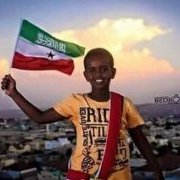

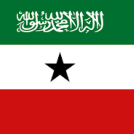
.thumb.jpeg.79edf7e652eaa56ebe85e2c649f6cd14.jpeg)



